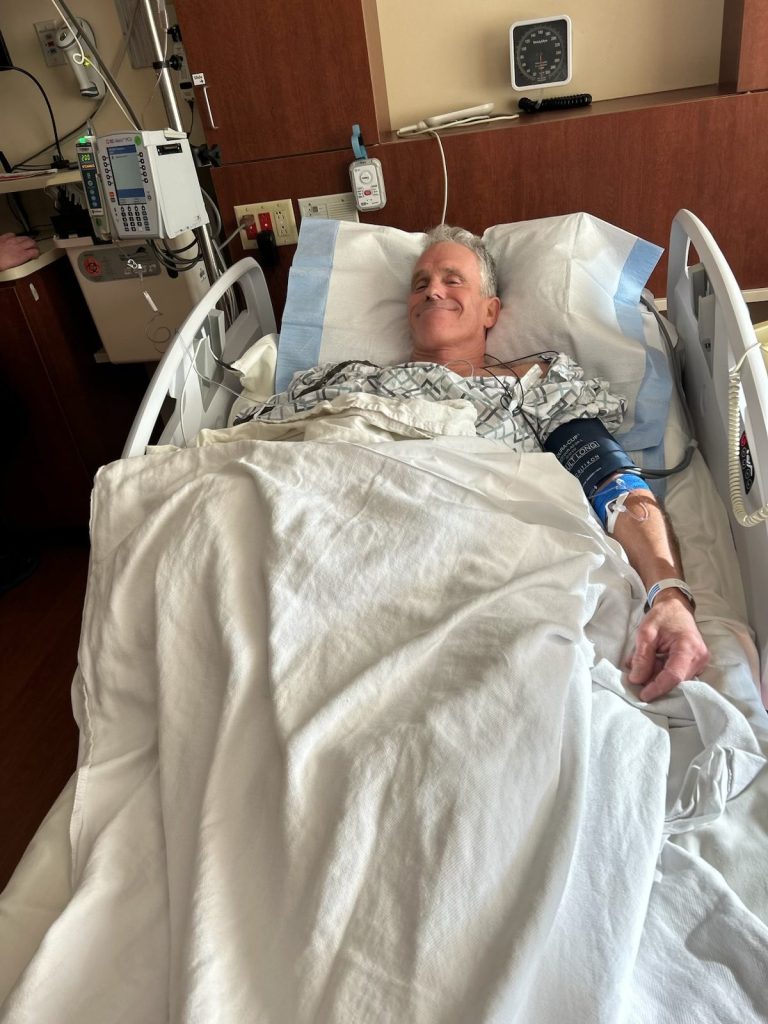When you know more, you can take an informed next step — even if it’s simply feeling happy and grateful about how you are caring for your body — and your body, for you.
Trevor Argall, MD, Family Practice, ThedaCare Physicians-Waupaca
Don’t Miss These 3 Important Health Screenings
I’m a big believer in health screenings because prevention is much less expensive than dealing with an acute health problem. And when I say expensive, I mean the entire toll disease takes on a person and their family — physical, emotional, and financial.
For example, I can help patients take meds or quit smoking to lower their blood pressure. That’s much easier than taking multiple meds and undergoing lots of tests and cardiac rehab after a heart attack. It pays to discover a treatable condition before it causes a life-altering emergency.
One thing that can take a lot of effort is convincing some of my patients that health screenings are important, and they should not skip them. I often have long talks with them about the value of colonoscopies, mammograms, and yearly wellness visits. Here’s what I share:
A colonoscopy is a colorectal cancer screening for men and women starting at age 45, then once every 10 years if results are normal. When you get screened for colorectal cancer, you’re getting checked for the No. 1 most preventable cancer and the second-leading cause of cancer death. In fact, when colorectal cancer is caught early, there is more than a 90% chance it can be treated successfully.
One big benefit of a colonoscopy is that it’s both diagnostic and therapeutic. That means we can find problems (diagnose them) and treat them (provide therapy) during the actual procedure. This happens when the physician sees a colon polyp with his or her camera scope and immediately removes it. Polyps can be precancerous. A person can leave a colonoscopy healthier than when they went in.
Yearly screening mammograms are recommended for women by the time they reach age 50, although a woman can choose to start earlier based on her family history.
A mammogram is a low-dose X-ray exam of the breasts to look for abnormal changes. One in eight women will get breast cancer in her lifetime, and a mammogram is a quick, safe, and in nearly all cases, no-cost method to detect breast cancer early.
Medical organizations vary in their guidance on the best age to start screening mammograms and how often to repeat them. Some recommend annual screening as early as age 40. Talk to your primary care provider to get a recommendation based on your situation and family medical history.
An annual wellness screening (sometimes called your annual physical) is the best way to detect and discuss health issues that you may not realize you have. For example, I might discover high blood pressure or an abnormal mole on an otherwise healthy person. We complete a depression screening for mental health concerns and have a chance to discuss safety issues with people as they age, especially around fall risk.
An older adult might benefit from a bone density screening and following up with lifestyle changes, medications, and/or infusions to treat osteoporosis and prevent fractures. Imagine, when we work together to prevent a fall or broken hip, it can change the course of a person’s entire life — in a great way. I’ve written a lot about discovering potential health concerns, but it’s just as important to mention how good it feels to get a clean bill of health after an appointment. When you know more, you can take an informed next step — even if it’s simply feeling happy and grateful about how you are caring for your body — and your body, for you
Take positive steps for your health today.
Schedule your annual wellness visit or mammogram using MyThedaCare.
Request a colonoscopy appointment.
The post Care for Your Body as it Cares for You appeared first on ThedaCare.

Leave A Comment